Meet the 2021 Khoury College Award Winners
Author: Madelaine Millar
Date: 08.17.21
Khoury College of Computer Sciences is full of motivated, talented, creative, and service-oriented students and alumni. Every year, though, a few go above and beyond to improve their community, their industry, and themselves. This year, nine such people received awards recognizing their accomplishments in the realms of research, teaching, co-op, and community service. Read on to meet these nine alumni, some of whom are recent graduates, who represent the best of Khoury College.
Kyle Sferrazza: Undergraduate Teaching Award
At Khoury College, “Fundamentals of Computer Science 1” (or “Fundies One”) has a bit of a reputation. For some people, teaching a class known for its brain-bending learning curve would be a nightmare; for Kyle Sferrazza, winner of the Undergraduate Teaching Award, it’s his favorite class to TA.
“Those times where it’s office hours right before a homework is due, or the day before an exam or something, and tens of students show up to office hours all asking questions—being able to get them to a place where they feel comfortable to submit that assignment or to take that exam the next day, from utter panic when they showed up, is a great feeling,” said Sferrazza. “I had some really great TAs my first semester, in fundies one, and I wanted to help people in the same way that they were helping me.”
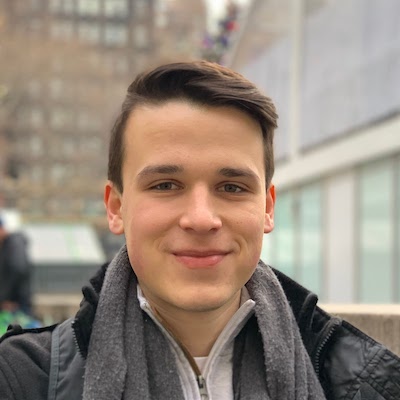 Kyle Sferrazza
Kyle Sferrazza
In addition to working as a TA for fundies one and two, and as a grader and a tutor for other courses, Sferrazza has worked with Professor Ben Lerner since 2019 to build a web application to let students take their computer science exams online. As a cybersecurity major, Sferrazza was disturbed by the invasive nature of many of the test-taking platforms on the market, and excited to find a way to incorporate his passion for education into his research. As the platform begins its rollout this year, Sferrazza is beginning a master’s in cybersecurity at Northeastern as part of the PlusOne program.
Isabel Tripp: Undergraduate Community Service Award
Isabel Tripp’s path through computer science has been anything but traditional; to her, that’s what’s made it meaningful. From a co-op at the Institute for Astronomy at the University of Hawaii identifying asteroids with the potential to hit the Earth, to a co-op at Square Roots, a Brooklyn-based start-up using tech to increase urban access to local food, it’s all about the impact for Tripp. That includes the impact she has on younger students, particularly students from nontraditional backgrounds or interested in pursuing nontraditional career paths.
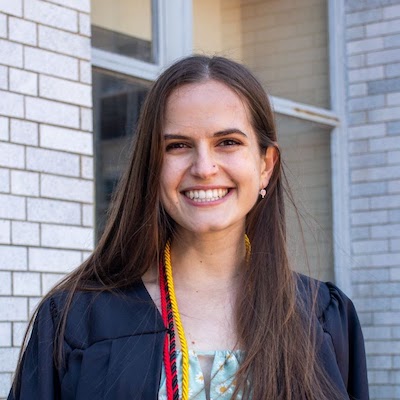 Isabel Tripp.
Isabel Tripp.
In roles as diverse as the outreach chair for NU Women in Technology, a mentor for the computer science mentorship organization CoSMO, and a Husky Ambassador, Tripp has consistently been a friendly face for younger students on campus. She’s helped people catch up on foundational knowledge (like how to use GitHub) that wasn’t covered in their high school classes, and shared insight about how to pursue co-ops in academia or government, for which there isn’t as clear of a pipeline as there is to the tech industry. More than anything, though, she’s tried to make everyone feel welcome in computer science.
“All my friends within computer science have very different skill sets and backgrounds, because of what we learn on our co-ops and bring back to group projects that we’re doing in class,” Tripp explained. “Oftentimes, people have totally different areas of expertise, even when we’ve taken basically the same coursework. That’s really exciting, because I can learn from other students as well as learning from the class itself.”
Tripp graduated in May with a bachelor’s in computer science and a math minor, in addition to the Undergraduate Community Service Award. She’s currently working at Zenysis, a San Francisco-based start-up that’s working on a platform to enable global development goals.
Lucas Calero Forero: Undergraduate Co-op Award
When Lucas Calero Forero started their computer science degree, they weren’t even sure it was what they wanted to study. How fitting, then, that their first co-op as a quality assurance (QA) mobile engineer at ASICS Digital was what convinced the Undergraduate Co-op Award winner that the tech space was exactly where they wanted to be.
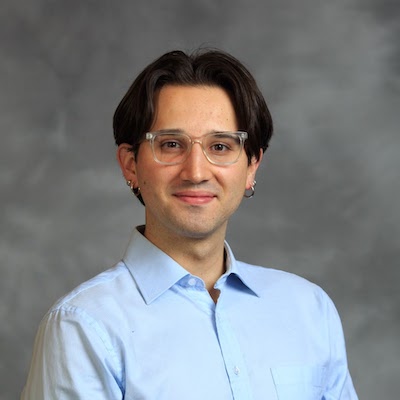 Lucas Calero Forero
Lucas Calero Forero
“Everything’s a learning opportunity. I was initially disappointed that my first co-op was doing QA, but I don’t think I could have found anything better for me at that point,’ said Forero. “In doing QA, you get exposure to so many different teams, and you get exposure to so many different engineers; if I hadn’t asked all those questions to every single team member at Basics Digital, I don’t think I wouldn’t still be in CS. I was able to really see the diversity of thought and the diversity of people working in the tech industry.”
Calero went on co-op two more times; first, a self-developed co-op as a machine learning engineer at a start-up in Santiago, Chile, then as a data and back-end engineer at Spotify. During their co-ops, they found the real-world impact of their work helped them develop communication skills that they would have never developed as fully in the classroom. Calero is passionate about working in a mission-driven environment, and after their May ‘21 graduation with a bachelor’s in computer science, they accepted a position as a machine learning engineer at the startup Nomad Health. They’ll miss Khoury, though, particularly the co-op department.
“Everyone in that team just really wants to help you succeed,” said Calero. “I even talked to my co-op advisor after I graduated; she hopped on a call and helped me with my resume, and helped me land this job that I’m taking.”
Akriti Chadda: Graduate Community Service Award
If someone helps Graduate Community Service Award winner Akriti Chadda, she always tries to pay it forward. So when a master’s in computer science from the Align program helped her build on her background in biomedicine, neuroscience, and robotics—resulting in a full-time position as an applied scientist at Microsoft—she knew she had to mentor others through their Align transitions too.
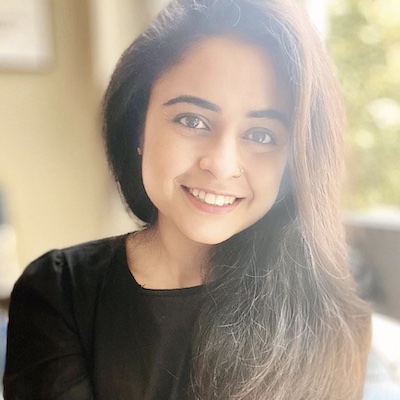 Akriti Chadda.
Akriti Chadda.
“I am very passionate about people moving into tech, especially women moving into tech from non-traditional backgrounds,” said Chadda. “I think the first year is the hardest part of the Align program, and it just becomes easier from there. A lot of people that I’ve spoken to who decide not to join the program, or dropped out early in the first semester, do that because they’re not prepared to put in the hard work, or don’t understand how much effort goes into transitioning into a new field. But that being said, I think the fruits of the labor that you get just by putting in that effort for the first two semesters are much, much, much more rewarding than the effort that goes in. It’s not proportional at all.”
In addition to her more formal Align mentorship, Chadda volunteers a lot of her time doing interview prep, resume reviews, and chatting about her career. She finds it incredibly rewarding to see someone receive seven or eight interviews after making a few tweaks to their resume, and she even helped one woman negotiate her starting salary up by $40,000. She also runs a popular Instagram page to share her journey into tech, and to encourage others from underrepresented or nontraditional backgrounds to take the plunge.
Chintan Shah: Graduate Research Award
It’s not easy to simulate an epidemic forward to guess where it will spread, yet it is even more challenging to figure out the origins of the epidemic. It takes the better part of a day for a supercomputer to run it backwards, and figure out where the epidemic originated in order to triage resources and contain it. But what if a neural network could do it in a fraction of the time?
This is the problem that Graduate Research Award winner Chintan Shah has worked on for the past year. In addition to being one of his first introductions to research, the project (headed by Dr. Rose Yu) provided an early opportunity for Shah to dig his teeth into machine learning.
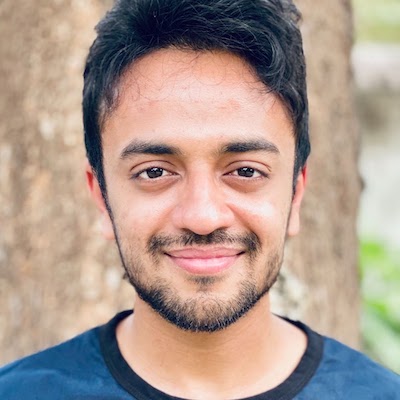 Chintan Shah
Chintan Shah
“In my second semester, I had the opportunity to take a machine learning course and I was totally blown away. I thought okay, this is it—this is what I want to do … I’m very grateful for the quality of education in the first place, because I think if not for some of these courses that I took it would have been very hard to actually go do any of these research projects,” said Shah. “When I started at Northeastern, I hadn’t done much research, so for those who are starting out I think it’s important to know that it’s okay if you’ve not experienced that in the past. Just go all in and you’ll be fine.”
Shah loves machine learning for its dynamism and creativity. After his December 2020 graduation with a master’s in computer science, he has worked as a machine learning engineer at the medical tech startup Path AI, where he is helping to build an AI to advance digital pathology and enable cancer research.
Ariel Hamlin: PhD Teaching Award
Going into the fall of 2019, Ariel Hamlin wasn’t planning to run a 600-student course, but being a great teacher means being flexible. Her favorite part of teaching is mentoring students individually, but when a “Discrete Structures” course coordinator left on short notice, the PhD Teaching Award winner stepped up to the plate. She found the semester to be an incredible learning experience, thanks in no small part to the work of her TAs, but she appreciated that she was only directly teaching 50 students so that she could spend more time with them one-on-one.
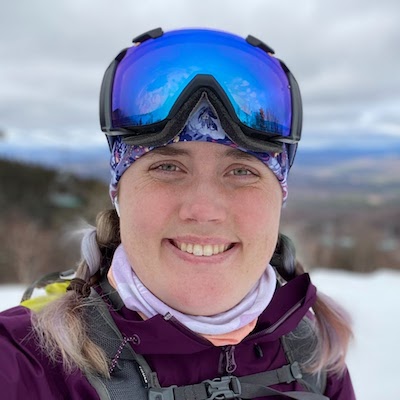 Ariel Hamlin.
Ariel Hamlin.
“Mentorship has been so important in my own career. I wouldn’t have gotten into computer science, I wouldn’t have ended up at the job I’m currently at without that mentorship; I wouldn’t have ended up in a PhD program, and successfully completed that PhD program, without having these mentors along the way,” she said. “As a woman in computer science, having those mentors and role models was very important to me, and so being able to do that for other students was very heartwarming.”
After graduating with a doctorate in computer science, Hamlin is returning to a job at MIT’s Lincoln Laboratory. For the time being, she’s hoping to get involved with lab programs like LL Cipher, which teaches cryptography to high school students, in order to scratch her teaching itch. “I love working with students,” she explained, “especially one on one, and getting to a place where you understand what they don’t understand.”
Sofia Eleni Spatharioti: PhD Community Service Award
Whatever PhD Community Service Award winner Sofia Eleni Spatharioti is doing, she wants to bring the human element to the forefront. In her research, that means making human–computer interactions more engaging and rewarding; in her post-grad work as part of the computational social science group at Microsoft Research, that means making the mind-boggling numbers populating the news cycle comprehensible. In her time as a doctoral student, that meant finding every opportunity to go beyond the work and the research and start building a community.
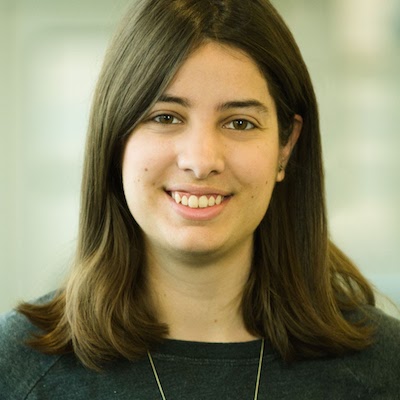 Sophie Eleni Spatharioti
Sophie Eleni Spatharioti
“We’re spread out across different buildings as PhD students—you have people in West Village H, you have people in ISEC—and you suddenly realize that it’s very easy to spend five years, six years [here] and not meet everyone in your year,” she said. “I feel like the vast majority of students want to have this social experience. They want to get together, they want to meet people … Don’t fall into this loop of, I need to get this working, there’s deadlines! Yes, there are, but your mental health is also very important, and if you don’t take care of it you’ll see that.”
So, Spatharioti organized. She helped to run the PhD Social Hour, a regular, informal social space for doctoral students; she worked as an organizer for the Khoury PhD Women group; she served as a representative for the PhD open house. And she found that the more she focused her free time on things other than her research — for instance, tennis, her favorite sport — the more relaxed and productive she felt when she was working. After graduating in December of 2020 with a doctorate in computer science, she wants to encourage other students to seek out community and prioritize their work-life balance.
“Doing research as a PhD student has a lot of uncertainty, and you get to worry about this and stress about your research work throughout the week,” she said. “Let’s make sure that your mind is actually clear a few times a week, so that you don’t overwork yourself and stress yourself out.”
Albert Cheu: PhD Research Award
Local randomization is a well-established technique in the world of data privacy—noise is added to an individual’s data so an outside observer wouldn’t know whether the result is the original value or an alternative one. Unfortunately, this technique introduces a lot of error to the statistics that can be drawn from the data. But what if, on top of not being able to tell what’s true and what’s noise, a malicious agent also couldn’t tell who gave which answers? This is called anonymization, and it’s what Albert Cheu, winner of the PhD Research Award, is working to develop.
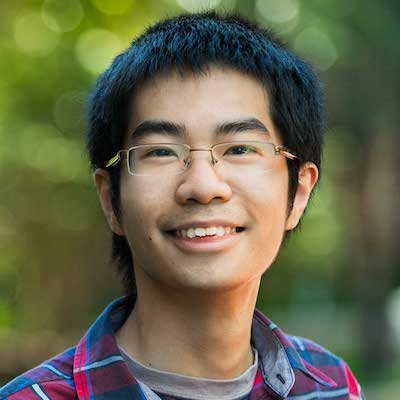 Albert Cheu.
Albert Cheu.
“What gets me excited [about privacy and security] is that it’s something that we really need to be concerned about. For me personally, it’s both [that] there’s interesting mathematical and theoretical questions, but also at the end of the day it’s defining what we mean by privacy,” he explained. “It’s really useful to have some kind of rigorous way of analyzing and asking if the people who are using our information or collecting our information are doing the right thing. That’s what we are basically trying to do; make sure the people who have that are using it correctly.”
Companies like Google have already begun to apply anonymization, but for the moment Cheu is more interested in staying in academia. After graduating in May with a doctorate in computer science, he’s off to work with Kobbi Nissim at Georgetown University, where he’s looking forward to learning more about the legal and policy side of computer security while keeping his day-to-day focus on the math. Although he’s looking forward to a new challenge, he’ll miss the Khoury College community.
“Khoury has selected a really good base of security and privacy professors that I’m just able to work with, ask questions to, and take classes with,” he said. “There’s a variety of things that people are working on, and I like being in that environment. Even if I’m not writing papers for them, just being there, being passively inspired … They’re good researchers, but also good people.”
Jillian Kando: Outstanding Alumna Award
When reflecting on her education and early career, Jillian Kando considers herself an example of how important it is to introduce people to STEM early and often. Her father was an electrical engineer and always pulling apart electronics like VCR players at the dining room table, so by the time Kando got to her first programming class in high school (a rarity in the late ‘90s and early ‘00s), she had a keen interest and a leg up.
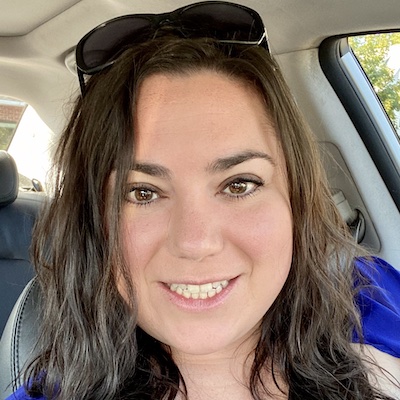 Jillian Kando
Jillian Kando
Her three software engineering co-ops solidified her career trajectory and gave her the network and experience to build her start-up-focused career. Fourteen years later, Kando is happy and proud to be a director of engineering at the alcohol delivery service Drizly. She manages the teams building the Drizly website and mobile apps and guides her teams through the company’s high-level engineering direction — a long way to come from a disassembled VCR.
“The computer science program at Northeastern gave me a really good foundation to build off of, which has served me well in my career,” said Kando. “Not only did I learn all of the programming concepts I would need to be successful, I also learned how to learn new concepts and apply them. This is an invaluable skill, especially if you want to be a software engineer. The industry changes constantly, and as an engineer, you need to be able to learn a new set of technologies, troubleshoot difficult problems, and assess the right tool and solution for what you are working on.”
The 2021 Outstanding Alumna Award winner has also remained very involved with the Khoury community since graduating in 2007 with a dual degree in computer science and cognitive psychology. She speaks at campus panel events to help current students better understand their potential career trajectories and the wider software engineering industry. She has also been a strong advocate for the co-op program at several of the companies she’s worked at, and has facilitated the hiring of many students.
“So many of the opportunities you get after graduation come from networking, and the co-op program gave me a great head start,” said Kando. “Attending Northeastern University played a huge role in who I am today and the success that I have had in my career, so I am happy to give my time and expertise where I can.”